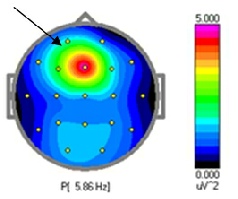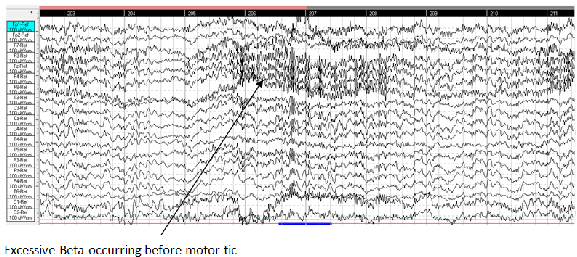ADHD
Understanding ADHD Therapy in Singapore | Our Intervention
DEVELOPMENTAL & BEHAVIOURAL ISSUES

ATTENTION DEFICIT / HYPERACTIVITY DISORDER (ADHD)
Attention Deficit Hyperactivity Disorder (ADHD) is a condition that affects 5-8% of children and adolescents in Singapore. Generally, it appears as trouble focusing or maintaining attention, along with impulsive behaviour. Children affected by ADHD also find difficulty following instructions and are easily bored or frustrated with tasks. They often feel restless and act on impulse without pausing to consider their actions. These behaviours occur more often than usual compared to other children and are more severe in a child with ADHD to the point where they interfere with a child’s ability to function at school and at home. In adulthood, people affected by ADHD find tasks like time management, organisational skills, goal setting, and managing work increasingly difficult. This often strains friendships and relationships. However, with the right ADHD treatment in Singapore, individuals can learn effective strategies to manage their symptoms, improve focus, and enhance self-control, leading to a more balanced and fulfilling life.
Many individuals with ADHD are gifted and intelligent. They can be very creative. However, their inability to focus and stay on task often leads to poor performance and under–achievement. They often find it difficult to complete tests and examinations. This tends to lead to low self-esteem, which can spiral into major social and behavioural problems.
Types & Symptoms
If symptoms are consistently present for 6 months to a maladaptive degree and present in two or more settings, they are a significant indicator of ADHD.
Inactive Type
One significant indicator is short attention spans. Individuals with ADHD are easily distracted by unrelated events, often shifting focus from one unfinished task to another. They may also be forgetful in their daily routines and struggle to listen attentively.
Hyperactive Type
Another telltale sign of ADHD is difficulty engaging in quiet leisure activities. They often talk excessively and are fidgety. Hyperactive type ADHD in teens may manifest as restlessness.
Impulsive Type
Furthermore, individuals with ADHD may appear impatient. They may struggle to wait their turn, often start conversations at unsuitable moments, and frequently interrupt others, leading to disruptions.
FINDING THE CAUSES
Brain factors
Recognising that ADHD is essentially a brain or neuro-developmental condition, Spectrum Learning routinely conducts qEEG brain mapping to look into brain-related factors that could lead to symptoms of ADHD. qEEG brain mapping enables us to identify various ADHD subtypes. More importantly, it provides insights into how individuals use their brains during specific tasks, such as reading and writing. With the growing awareness of ADHD in Singapore, this approach offers valuable insights for more personalised treatment strategies. One of the hallmarks of ADHD is an elevated presence of Theta brain waves (4-7Hz). qEEG brain mapping will allow us to localise any anomalies in brain activity, and thereafter design a brain exercise program tailored to the specific ADHD profile.
QEEG Case Studies
The following list shows different subtypes of ADHD and their respective brain mapping profiles that were identified using qEEG. These different profiles point to different brain-related causes of ADHD. Each of these subtypes has similar behavioural symptoms but requires different types of intervention. Once we have identified the particular type of ADHD our client is experiencing, we create a tailored neurofeedback training programme that is specifically suited to their needs. This personalised approach leads to more effective outcomes. The profiles we identified are based on both our in-house research and studies from research centres worldwide.
This qEEG profile belongs to a child diagnosed with ADHD. He has behavioural problems in school and at home. The qEEG shows that he has excessive Beta at his right frontal site (F4). He is very driven and disruptive.
Shown is the qEEG profiie of a child diagnosed with ADHD. The qEEG shows that there is excessive Theta at the mid-frontal (Fz). He is hyperactive, procrastinates, disorganised and lacks motivation.
In this qEEG profile of an ADHD boy, our client has excessive Delta at the frontal sites (F3,Fz and F4). He is very restless, sleepy, inattentive and passive. He also lacks motivation.
The EEG strip chart below shows that of a 9 year old boy diagnosed with ADHD with motor tics. The EEG shows that there is excessive Beta at the frontal sites before every motor tic. The QEEG analysis shows that this boy has both excessive Beta at the frontal and excessive Theta at the mid-frontal.
Neurofeedback as ADHD Treatment in Singapore
At Spectrum Learning, we create personalised brain training protocols for individual clients using neurofeedback, guided by brain mapping. By identifying and targeting specific hyperactive and underactive regions of the brain, neurofeedback helps regulate brain activity in our clients.
The most common form of neurofeedback for ADHD in Singapore trains the brain to reduce Theta waves and increase Beta waves. Over time, clients are able to regulate Theta and Beta waves desirably, reducing the severity of ADHD.
Biological factors
In addition to the inherent brain factors that contribute to ADHD symptoms, nutritional imbalances can also play a significant role. At Spectrum Learning, we also conduct hair tissue mineral analysis (HTMA) to assess nutritional imbalances that may contribute to symptoms of ADHD, as these imbalances can exacerbate issues like restlessness and impulsivity. Below are some common physical health profiles of ADHD, as documented in numerous research studies:
- Gastrointestinal abnormality
- Compromised immunity
- Toxic metal accumulation such as Lead and Mercury
- Deficiency in fatty acid
- Deficiency in minerals such as Calcium, Magnesium and Zinc
- Deficiency in Iron
HTMA can reveal one’s nutritional profile. Our therapists are trained to provide advice on intervention through supplementation and dietary adjustments.
At Spectrum Learning, we take a comprehensive approach to ADHD management. By addressing both brain activity and nutritional factors, we help our clients achieve improved focus, impulse control, and overall well-being. If you’re seeking effective ADHD therapy in Singapore, reach out to us today to begin your journey toward a more balanced and fulfilling life. Let us help you unlock your potential with a tailored, holistic approach to ADHD management.

